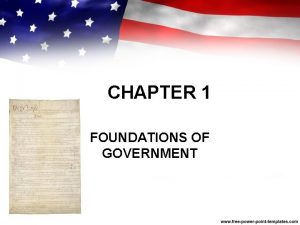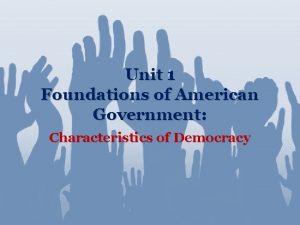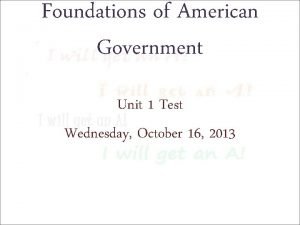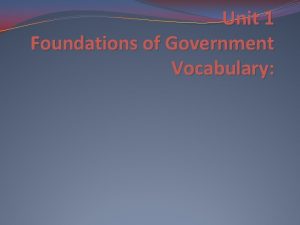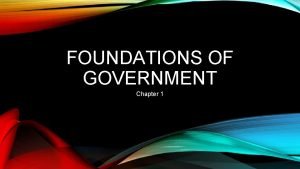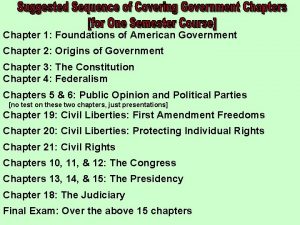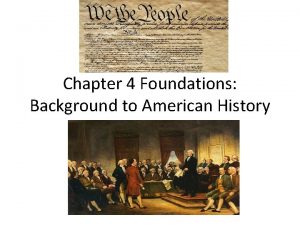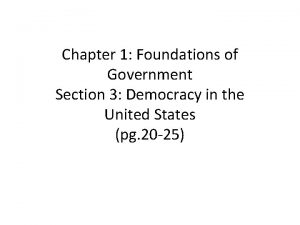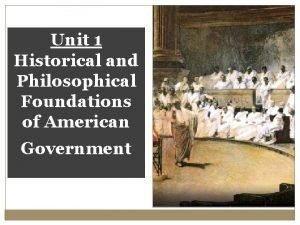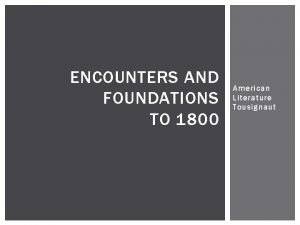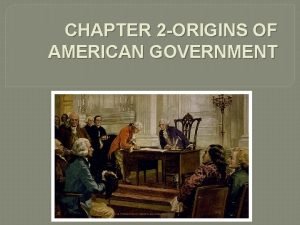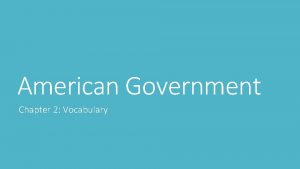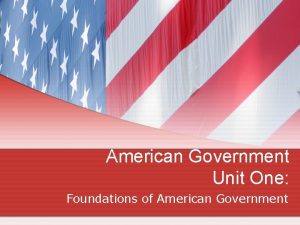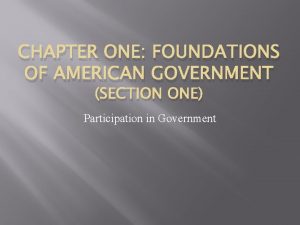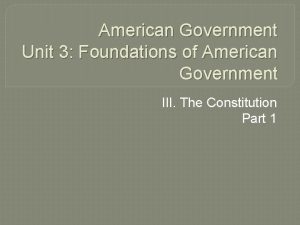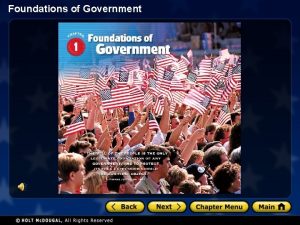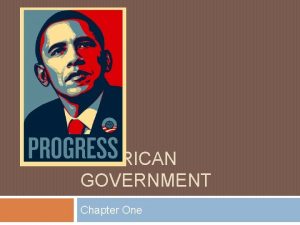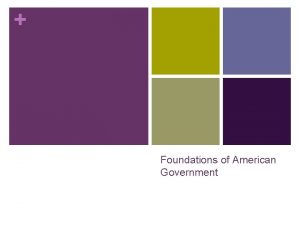Chapter One The Foundations of American Government What











- Slides: 11

Chapter One The Foundations of American Government

What is Politics? • The struggle or process that people engage in to decide which members of society get certain benefits or privileges and which members of society are excluded from benefits or privileges

What is Government? • An institution, or ongoing organization with a life over and above the lives of the individuals who are part of it at any given moment in time • The institution within which decisions are made that resolve conflicts or allocate benefits and privileges

Why Do We Need Government? • Security • Order

Types of Government • Totalitarian regime – rule by a small group or an individual dictator • Authoritarianism – only the government (not social and economic institutions) arefully controlled by the ruler • Oligarchy – rule by a few elites, who make decisions to benefit their own group • Aristocracy – initially rule by the best suited, which meant the wealthy, later it meant titled nobility • Democracy – political power is vested in the people • Direct democracy – when citizens vote directly on laws

What Kind of Democracy Do We Have? • Majoritarianism – the political theory that, in a democracy, the government should do what the majority of the people want • Elite theory – the idea that society is ruled by a small group who exercise power in their selfinterest • Pluralism – a theory that views politics as conflict among interest groups, where decisions are made through bargaining and compromise

Fundamental Values • Liberty versus Order • Economic equality versus the Right to Property

Ideology • A closely linked set of beliefs about the goal of politics and the most desirable political order – Liberalism advocates government action to improve the welfare of individuals, support for civil rights and tolerance for social change – Conservatism advocates a limited role for the government in helping individuals and support for traditional values and lifestyles

Table 1 -1: The Traditional Political Spectrum Socialism Liberalism Conservatism Libertarianism How much power should the government have over the economy? Active government control of major economic sectors. Positive government action in the economy. Positive government action to support capitalism. Almost no regulation of the economy. What should the government promote? Economic equality, community. Economic security, equal opportunity, social liberty. Economic liberty, morality, social order. Total economic and social liberty.

Figure 1 -1: A Four-Cornered Ideological Grid

Hot Links to Selected Internet Resources: • Book’s Companion Site: http: //politicalscience. wadsworth. com/schmidtbrie f 2004 • Wadsworth’s Political Science Site: http: //politicalscience. wadsworth. com • Government Resources on the Web: http: //www. lib. umich. edu/govdocs/govweb. html • Institute for Philosophy and Public Policy: http: //www. puaf. umd. edu/IPPP
 Chapter 1 foundations of government worksheet answers
Chapter 1 foundations of government worksheet answers Unit 1 foundations of american government
Unit 1 foundations of american government Foundations of american government unit 1 test review
Foundations of american government unit 1 test review Chapter 1 foundations of government vocabulary
Chapter 1 foundations of government vocabulary Chapter 1: foundations of government pdf
Chapter 1: foundations of government pdf Foundations of government (chapter 1 test form a)
Foundations of government (chapter 1 test form a) Chapter 4 foundations background to american history
Chapter 4 foundations background to american history Foundations of government section 3
Foundations of government section 3 Philosophical foundations of the american revolution
Philosophical foundations of the american revolution Encounters and foundations to 1800
Encounters and foundations to 1800 Chapter 2 american government
Chapter 2 american government Origins of american government vocabulary
Origins of american government vocabulary
